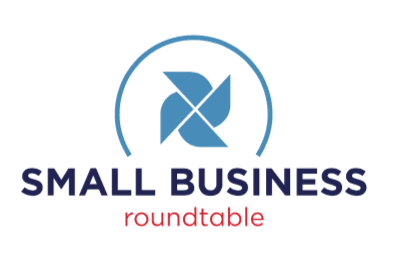The Largest Coalition of National Small Business Organizations, Small Business Roundtable, Encouraged by Bipartisan Infrastructure Agreement
Washington, D.C. - SBR Leaders issued the following statements in response to Bipartisan Infrastructure Agreement:
Rhett Buttle & John Stanford, Co-Executive Directors of Small Business Roundtable
“This bipartisan framework shows that it is possible to work across the aisle to better roads, bridges, transit and rail to benefit Americans across the nation and enable them to return to work. Many provisions would bolster the American competitive marketplace and economy and create new opportunities for small businesses and workers. We know this package doesn’t include or tackle everything -- that’s what compromise is about. We look forward to continued conversations on topics such as paid leave, lowering healthcare costs, increasing contracts and capital to women and business owners of color. We will continue to work with the Administration and Congress in ensuring that the small business community remains a priority in this package and future legislation.”
Candace Waterman, President & CEO of Women Impacting Public Policy (WIPP)
“We applaud the Administration and Congress for their bipartisan efforts to reach an agreement on a comprehensive infrastructure plan. This bipartisan effort will deliver progress and spur economic growth for the American and women business owners, and it is our hope that Congress and the Administration will continue to work together on other measures important to women business owners, including government contracting and access to capital. This infrastructure plan will bring American roads, bridges, ports and airports to the 21st century and is a huge victory for women owned businesses and their workers.”
Chiling Tong, President & CEO of the National Asian Pacific Islander American Chamber of Commerce and Entrepreneurship (National ACE)
“National ACE applauds the recent bipartisan efforts of Congress and the Administration to deliver an infrastructure plan that will create jobs and economic opportunities for AAPI small businesses. The infrastructure plan will make American markets more competitive and allow a diverse range of industries to contribute to vital infrastructure projects. We look forward to future bipartisan discussions around not only infrastructure, but other key areas that will bolster AAPI small business.”
Eddie Monroy, Executive Director of the NextGen Chamber of Commerce
"NextGen applauds efforts from the Administration, Congress, & both sides of the aisle as we see an infrastructure deal come closer to reality. For far too long our country has needed to invest in modern infrastructure which will sustain the growth of our emerging communities. An infrastructure deal makes sure that generations to come have the ability to thrive in their hometowns in an equitable way. The pandemic has demonstrated the country’s ability to work together - now is the time to continue working together in order to ensure future generations have access to clean drinking water, safe roads to travel, a reduced carbon footprint, and access to digital tools, all of which will help contribute to local economic development opportunities."
Jen Earle, CEO of the National Association of Women Business Owners (NAWBO)
“We continue to hear from women business owners that more reliable and affordable internet is needed to expand and grow their businesses,” explained NAWBO CEO Jen Earle. “We applaud the Senate for their bipartisan work to move a package forward, and we look forward to supporting a final bipartisan solution that will move our women business owner economy in the right direction.”
Jill Houghton, President & CEO of Disability:IN
“Disability:IN commends the efforts to work across the aisle to find a common ground on a comprehensive infrastructure deal. Provisions in this deal would improve the lives of disabled Americans including a focus on a more sustainable economy, a much needed upgrade of public transit systems across the country, and a more competitive marketplace for business disability inclusion. Beyond the infrastructure proposal, we will continue our work to empower business to achieve disability inclusion and equality”
Justin G. Nelson, Co-Founder & President of the National LGBT Chamber of Commerce (NGLCC)
“On behalf of the estimated 1.4 million LGBT businesses in the US, who contribute over $1.7 trillion annually to the US economy, drive sustainable growth, and create tens of thousands of jobs, we believe the proposed infrastructure plan will be a significant driver for our diverse small businesses. As this bill moves forward in Congress, we hope there is bipartisan agreement that diverse and small businesses should be active recipients of contracting opportunities.”
Karen Kerrigan, President & CEO of the Small Business & Entrepreneurship Council (SBE Council)
"Modern infrastructure is critical to U.S competitiveness, and the ability of small businesses, their workforce and entrepreneurs to operate effectively and productively. Given the great need in our country, a bipartisan path on infrastructure should be achievable. We encourage congressional leaders on this issue to keep striving towards the creation of an inclusive package that provides small businesses a meaningful opportunity to participate in contracting opportunities.
Keith Hall, President and CEO of the National Association for the Self-Employed (NASE)
“The small business community applauds both the Administration and Congress for working together in a bipartisan way to reach a deal on infrastructure. While the real work now begins, the winners of this deal will be the American people and small businesses who rely on a transportation and infrastructure system to move their American-made goods and workforce. It is our hope that the Administration and Congress continue to work together on a variety of issues, including those important to the small business community. We look forward to working with all our policy makers to ensure the strength of the American small business community.”
Ramiro A. Cavazos, President and CEO of the United States Hispanic Chamber of Commerce (USHCC)
“The United States Hispanic Chamber of Commerce (USHCC) represents the economic interests of more than 4.7 million Hispanic businesses in the U.S., who contribute over $800 billion annually to our economy. We firmly believe the proposed infrastructure plan by the Administration will be a key economic driver for our minority small business community. As this bill moves forward in Congress, we urge bipartisan support for our Hispanic businesses to have access and be recipients of federal contracting opportunities at all levels to grow our economic power and scale Hispanic business.”
Ron Busby, President & CEO of U.S. Black Chambers, Inc. (USBC)
“As the national voice of Black businesses, the U.S. Black Chambers, Inc. (USBC) supports a robust, comprehensive infrastructure package that improves predominantly Black neighborhoods and subsequently ensures Black business owners and entrepreneurs are provided opportunities to help solve our country's critical infrastructure challenges. We encourage lawmakers to include equitable measures that advance our nation's Disadvantaged Business Enterprises (DBEs), prompt-pay initiatives, among other significant provisions in the forthcoming infrastructure deal.”
Todd McCracken, President and CEO of the National Small Business Association (NSBA)
“Having a fully-functioning, modern infrastructure is critical to America’s small businesses, and this bipartisan legislation stands to make major improvements—something that hasn’t been done in more than 35 years.
Infrastructure improvements hold untold opportunities for small businesses, both in access to customers and services, but also in terms of helping to make those improvements through the federal contracting process.
It is important to underscore this framework as a bipartisan win—one of NSBA’s top priorities is political reform and closing the partisan gap—and while there are still many details to iron-out, the good-faith negotiations should serve as an example of how policy can and should be made.”
###
The Small Business Roundtable (http://www.smallbusinessroundtable.org/) is a coalition of leading small business and entrepreneurship organizations, dedicated to advancing policy, securing access, and promoting inclusion to benefit the businesses at the heart of the American economy.

